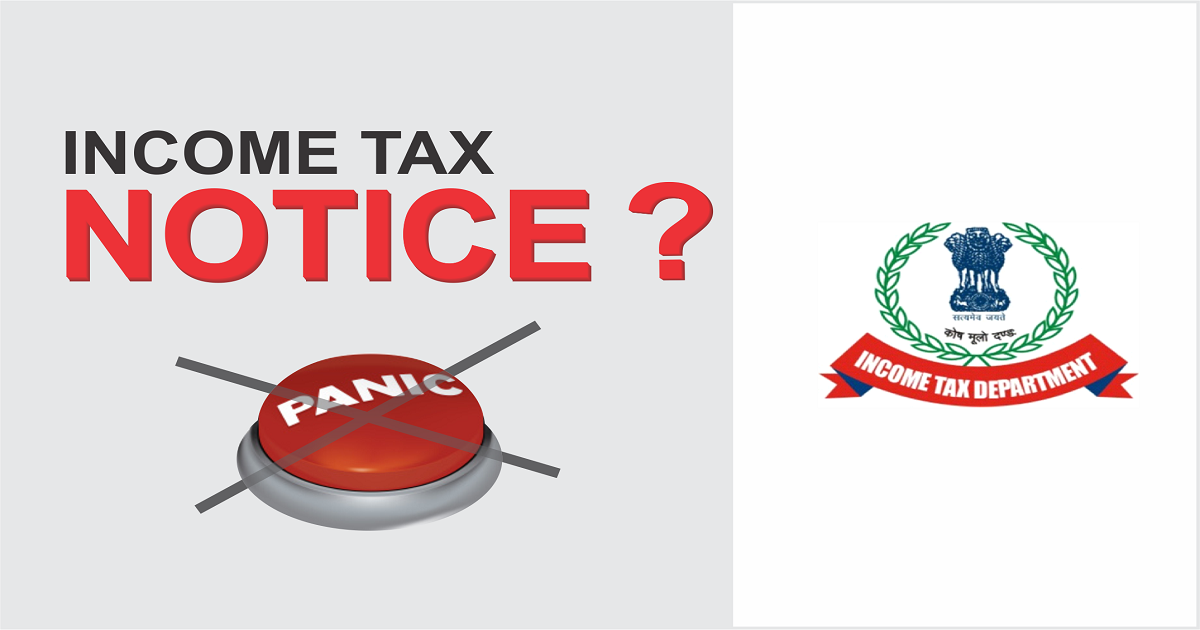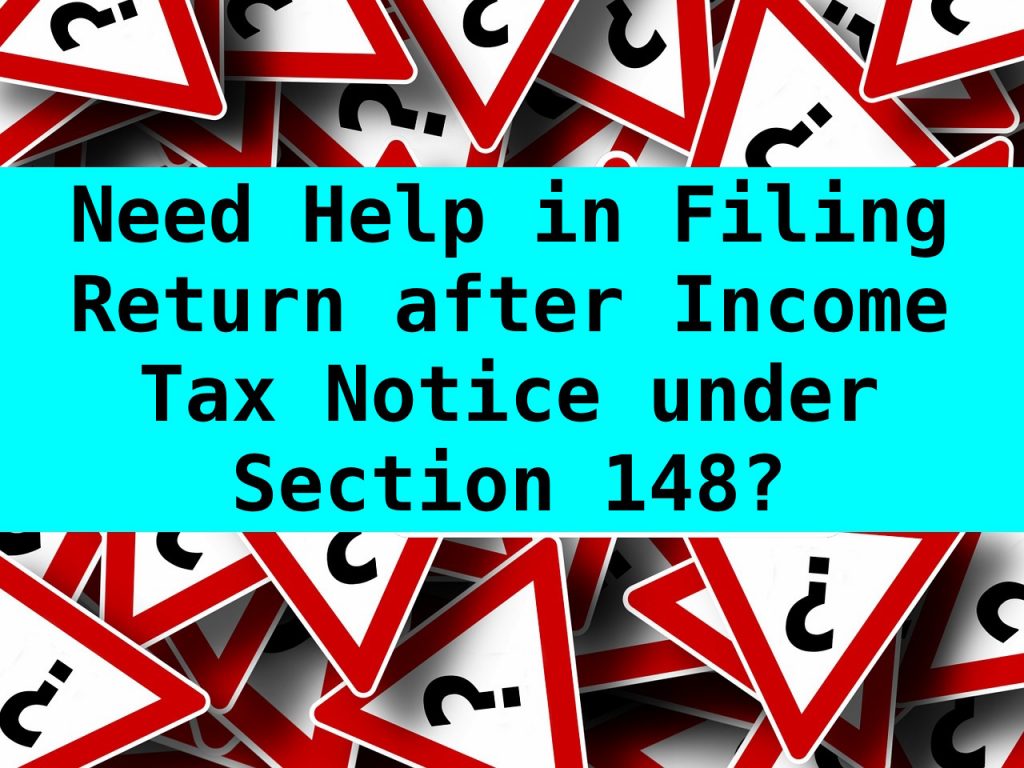NOTICES UNDER SECTION 148 OF INCOME TAX AND COMMON MISTAKES MADE BY TAXPAYERS IN FILLING RETURN AGAINST SUCH NOTICE

Are you the one who has got the notice under section148? Are you confused how to file your return? In this article read about Notices Under Section 148 Of Income Tax And Common Mistakes Made By Taxpayers In Filing Return Against Such Notice.

SECTION 148:
Section 148, of Income tax, deals with the power of an Assessing Officer, to initiate reassessment proceeding against any taxpayers, if Assessing Officer has reason to believe that any taxpayer has tried to escape assessment, in spite of filling return and call upon the assessee to re-file the return. A proceeding of Re-assessment is also known as “re-opening” of assessment.
Therefore, the Assessing Officer may exercise his power for evaluation or re-assessment as per section 147 to 153 of the act.
NOTICE UNDER SECTION 148:
Section 148 of the Income Tax Act also deals with the issue of notice where any taxpayer has escaped assessment or recomputation and Assessing Officer wants to make assessment/Re-assessment under section 147.
Therefore, where an Assessing Officer has made an opinion that any assessee has escaped assessment and he wants to make assessment or reassessment under section 147, an Assessing Officer has to issue notice under section 148 intimating an assessee to file his or income returns, for assessment year for which a taxpayer has escaped assessment.
The notice under section 148 can also be issued where assessee has already filed his/her return for the said assessment year under section 139 or 142(1) and directing him to file the returns once again, even if the same has also been audited /scrutinized
However, the assessing officer has to records his reasons in writing for doing so before issuing such notice.
Where any such notice has been received by an assessee by assessing officer under section 148, the assessee required file returns related to his or her income within 30 days of such notice or within a period as specified in the notice.
Notices Under Section 148 Of Income Tax And Common Mistakes Made By Taxpayers In Filing Return Against Such Notice in Detail.
COMMON MISTAKES MADE BY TAXPAYERS IN FILLING RETURN AGAINST THE NOTICES ISSUED UNDER SECTION 148:
Where any notice has been received by the assessee under section 148, directing assessee to file his return, needs to be fully complied off.
That is the assessee has to file his or return irrespective of the facts that he/she has already filed their return.
However, the common mistake done by the taxpayers in complying with such notice is that they don’t file the return at all, thinking that they have already filed the same, and there is no requirement of redoing it.
Therefore, instead of filing return, they just submit a letter declaring that the return has already been filed for the relevant year and same should be treated as the return filed against such notice.
Though there is judicial pronouncement backing such filing of the letters against such notice as deemed compliance, still assessee are advised to take a conservative step to remain safe and file the return, even though they have filed a return in the past, for the relevant period.
A non-filing of return against such notice not only exposes the taxpayer to unnecessary harassment in hand of income tax authorities but at the same time exposes the taxpayer to unwarranted interest and other penal cost in the form of fine etc.
In a situation where taxpayer wants to challenge the said notice by raising claims against deduction/by making counter claims, which might have been omitted when original return was filed, by arguing that he has already paid a higher tax than what is sought to be levied by re-opening of the assessment. In case assessee wants to make a counter claim as above, they would be in better position if they would have first filed return against such notice.
In the event where returns against income have not been filed, any counterclaim made by the assessee against the notice under section 148 liable to be dismissed as it would be considered that such claim has not been made validly.


 ITAT Amritsar: No Section 269SS Violation for One-Time Cash Payment Before Sub-Registrar
ITAT Amritsar: No Section 269SS Violation for One-Time Cash Payment Before Sub-Registrar  Tax Officials Unleash Digital Dragnet: How New Raid Powers Redefine Privacy, Property Rights in India and likely to Fuel Corruption
Tax Officials Unleash Digital Dragnet: How New Raid Powers Redefine Privacy, Property Rights in India and likely to Fuel Corruption  Income Tax Department Rewards for Reporting Tax Evasion: A Comprehensive Guide
Income Tax Department Rewards for Reporting Tax Evasion: A Comprehensive Guide  Forfeiture of Gratuity by Employer- What are the Remedies for an employee- Can employer be challenged?
Forfeiture of Gratuity by Employer- What are the Remedies for an employee- Can employer be challenged?  Employer can forfeit gratuity of an employee in case of moral turpitude
Employer can forfeit gratuity of an employee in case of moral turpitude  Diving Deeper: The Impact of the New Tax Bill on Dairy and Farming Income
Diving Deeper: The Impact of the New Tax Bill on Dairy and Farming Income